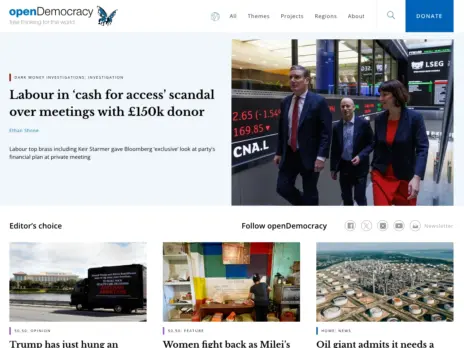
Broadcasters have urged Ofcom to exclude news and current affairs programming from proposed new “duty of care” requirements being drawn up after the deaths of two former reality TV show contestants.
In submissions to the regulator, ITN has said the proposals could lead to news programmes avoiding sensitive subjects and narrowing the diversity of their contributors, leading to a “sanitised view of the world”.
It also argued it could be impractical to expect news teams to carry out the required checks at the scene of a terrorist attack or natural disaster.
The Broadcasting Code already bounds broadcasters to “avoid unjust or unfair treatment of individuals or organisations in programmes” and be fair when dealing with potential contributors with a detailed breakdown of what this means and what they should be told in advance of taking part.
But Ofcom wants to introduce new requirements across all genres except drama, meaning broadcasters will have to take further measures to get “informed consent” from participants.
For news interviewees, even though Ofcom deems them low risk, broadcasters could have to tell them of the “potential negative consequences” that may come from taking part and check on them for any signs of stress or anxiety during the production.
After the programme, they could have to provide the participant with a contact on the production team, offer support in certain situations, and provide advice on any potential negative social media responses if there is a risk of this happening.
ITN’s chief executive Anna Mallett (pictured) said the changes “will create additional and unnecessary challenges” for its teams and “could see a reduction in airtime for eyewitnesses to key news events, members of the public giving their views, and victims of crimes or injustices sharing their stories”.
She added: “Ultimately, both viewers and the victims of injustices and news events will lose out – something which we believe would be significantly contrary to the public interest.”
ITN also feared the guidelines could extend to the subjects of investigations or those being secretly filmed and that this could “deter news programmes from carrying out vital public interest journalism”.
And it said broadcasters’ ability to tackle fake news could be hampered by increasing the regulatory burden on their news output compared to online platforms and newspapers.
In its submission to an earlier consultation, the BBC said requiring news programme teams with fast turnarounds to make records of all duty of care provided, when it is very difficult to assess every contributor to a vox pop for example, would equate to “onerous additional requirements”.
It said that given the apparent low level of risk, it was difficult to see how applying the requirements to news programmes would be “proportionate”.
Channel 4 said including news, current affairs and investigative documentaries in the rules “could have a seriously detrimental effect on such programming”.
“There is, for example, no public interest test within the proposed new rules. The result could be a significant chilling effect on free speech if the proposed regulation unduly discourages producers from tackling sensitive subjects or inhibits news programmes from conducting appropriately rigorous interviews.”
Sky News said the proposals created a risk to freedom of expression that Ofcom itself had said it wanted to avoid.
It said the combination of Ofcom’s existing rules in the Broadcasting Code and privacy, data protection and defamation laws “provide adequate protections for those featured in news programming”.
“We are concerned that any new rule that failed to provide for an appropriate assessment of the public interest in considering potential breaches could have a chilling effect on freedom of expression,” it added.
It also raised concerns that the proposed wording of the rules was too broad, leading to those who are not vulnerable people “attempting to rely on the new rules to avoid legitimate scrutiny”.
Russian broadcaster RT said forcing its staff to complete a risk assessment every time it interviews or films someone for a programme would have a “dangerous chilling effect” resulting in it and other broadcasters “avoiding risk and making many fewer reports and programmes featuring vulnerable individuals who (or people on their behalf) would potentially make a complaint to Ofcom”.
The broadcasters received support from the Commercial Broadcasters Association, which urged Ofcom to make it clear in the guidance that the rules cannot be someone who agreed to take part in a news interview that turned out to be a tough ride.
“Someone interviewed on a controversial topic may regret participating in a fair and balanced interview if they fail to get their own point of view across,” the CBA said.
“This rule must not be used to prevent the transmission of news, current affairs or documentary programming that meets the other rules of the [Broadcasting] Code (fairness, accuracy etc.) because of distress in the context of news and documentaries, if due care has been taken as to the participant’s welfare.”
Ofcom has said it does not intend to “hamper or obstruct programme-making by imposing disproportionate and unjustifiable requirements on
broadcasters”.
It also said it wants to make sure the new requirements don’t stop broadcasters from featuring people with vulnerabilities in programmes, adding: “Indeed, we recognise that there may well be significant public interest in exploring such vulnerabilities in programmes.”
Picture: ITN
Email pged@pressgazette.co.uk to point out mistakes, provide story tips or send in a letter for publication on our "Letters Page" blog






